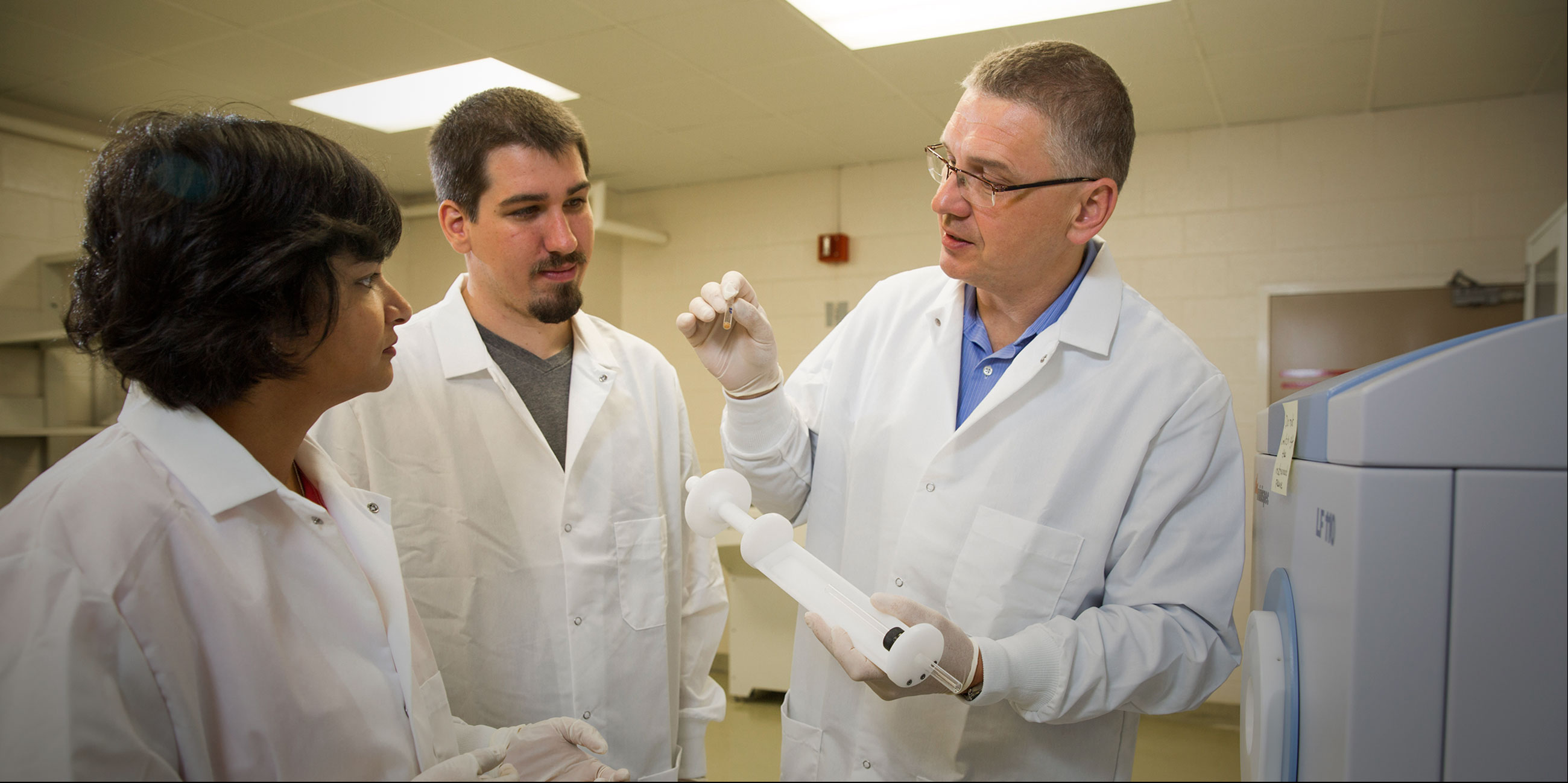Krzysztof Czaja, an associate professor in the College of Veterinary Medicine, is revealing new insights into causes of—and potential solutions for—the obesity epidemic.
Where did you earn degrees and what are your current responsibilities at UGA?
I earned my doctorate in neuroscience from Warmia and Mazury University in Olsztyn, Poland. I earned my Doctor of Veterinary Medicine degree from the Academy of Agriculture and Technology in Olsztyn, Poland. I am currently an associate professor of anatomy in the College of Veterinary Medicine.
When did you come to UGA and what brought you here?
I joined UGA in January 2015 as an associate professor of anatomy. I came here because this university was a perfect academic and personal fit for me.
What are your favorite courses and why?
I love to teach animal anatomy to veterinary students. Since I was a kid, I liked to disassemble things to understand how they work. This passion was later translated to my professional life. I believe that structure is the foundation for function. For veterinarians, it is important to understand the animal’s physiology to be able to treat them. But to understand the physiology, you need to know the anatomy. Teaching anatomy reminds me of my childhood disassembling game. Playing this game with my students is fun.
What interests you about your field?
My laboratory is investigating brain plasticity following Roux-en-Y gastric bypass (RYGB), the most effective method to achieve major, long-term weight loss. Specifically, we try to establish the role of the vagus nerve in the mechanism of RYGB. This information will help develop treatments for obese individuals that would be less radical than surgery. Moreover, establishing the role of brain reorganization in taste alterations may allow the development of novel therapies that can mimic the effects of RYGB surgery. Results of our studies serve as the foundation for breakthroughs in obesity treatment. I am fascinated to see firsthand that we really are what we eat.
What are some highlights of your career at UGA?
I’ve developed strong research in the field of obesity. My research received recognition in diet and obesity-focused portals such as Science 2.0, The Huffington Post, ScienceDaily, The Athens Banner-Herald and Quartz, among others.
How does your research or scholarship inspire your teaching, and vice versa?
My research inspires my teaching of anatomy by showing me the importance of the nervous system in the functioning of the human and animal body. I try to transfer this knowledge to my students. Teaching anatomy in turn inspires my research by showing me that we should not focus in research only on one cell or structure. It gives me the ability to see the big picture of my research on gut-brain communication.
What do you hope students gain from their classroom experience with you?
I hope my students will appreciate the importance of anatomy in their professional career. I also hope they develop a way of predicting the function of the given part of the body based on its structure.
Describe your ideal student.
I like to call it triple P: Passionate, Persistent and Patient.
Favorite place to be/thing to do on campus is…
My favorite place on campus except my lab is the Ramsey Student Center for Physical Activities. I like to play racquetball there. It helps me to unplug. Focusing on the fast moving ball allows me to forget about everyday problems and reset my brain. It has a therapeutic effect.
Beyond the UGA campus, I like to…
Enjoy the beauty of Georgia State Parks while camping with my family. I also like to transform a piece of wood into a nice pen or lamp in my wood shop.
Community/civic involvement includes….
I am actively involved in UGA’s Obesity Initiative to help the state address its growing epidemic of childhood and adult obesity, as well as the increasing incidence of overweight infants.
Favorite book/movie (and why)?
“Forrest Gump,” because it shows me that honesty and authenticity in what we do leads to positive change in our lives.
Proudest moment at UGA?
When I received an award letter for my R01 grant proposal from National Institutes of Health (NIH), the premier funding agency for my discipline.


